Filter News
Area of Research
News Topics
- (-) Hydropower (11)
- (-) Quantum Computing (31)
- 3-D Printing/Advanced Manufacturing (116)
- Advanced Reactors (34)
- Artificial Intelligence (87)
- Big Data (50)
- Bioenergy (88)
- Biology (96)
- Biomedical (58)
- Biotechnology (21)
- Buildings (55)
- Chemical Sciences (60)
- Clean Water (29)
- Climate Change (94)
- Composites (25)
- Computer Science (184)
- Coronavirus (46)
- Critical Materials (25)
- Cybersecurity (35)
- Decarbonization (75)
- Education (4)
- Element Discovery (1)
- Emergency (2)
- Energy Storage (107)
- Environment (192)
- Exascale Computing (36)
- Fossil Energy (5)
- Frontier (41)
- Fusion (53)
- Grid (61)
- High-Performance Computing (83)
- Irradiation (3)
- Isotopes (49)
- ITER (7)
- Machine Learning (46)
- Materials (141)
- Materials Science (136)
- Mathematics (6)
- Mercury (12)
- Microelectronics (2)
- Microscopy (51)
- Molten Salt (8)
- Nanotechnology (60)
- National Security (59)
- Net Zero (12)
- Neutron Science (130)
- Nuclear Energy (105)
- Partnerships (40)
- Physics (59)
- Polymers (31)
- Quantum Science (66)
- Renewable Energy (2)
- Security (24)
- Simulation (45)
- Software (1)
- Space Exploration (25)
- Statistics (3)
- Summit (57)
- Sustainable Energy (121)
- Transformational Challenge Reactor (7)
- Transportation (94)
Media Contacts
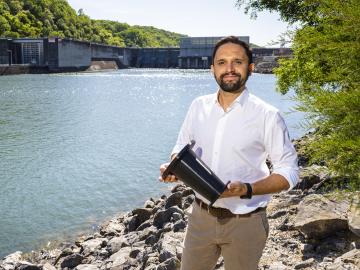
Mirko Musa spent his childhood zigzagging his bike along the Po River. The Po, Italy’s longest river, cuts through a lush valley of grain and vegetable fields, which look like a green and gold ocean spreading out from the river’s banks.
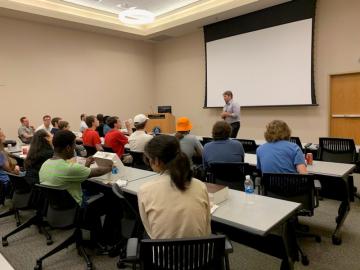
Quantum computing sits on the cutting edge of scientific discovery. Given its novelty, the next generation of researchers will contribute significantly to the advancement of the field. However, this new crop of scientists must first be cultivated.
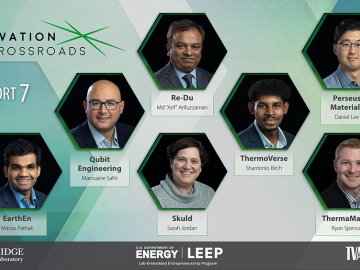
Seven entrepreneurs will embark on a two-year fellowship as the seventh cohort of Innovation Crossroads kicks off this month at ORNL. Representing a range of transformative energy technologies, Cohort 7 is a diverse class of innovators with promising new companies.
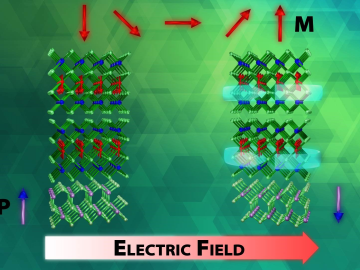
An advance in a topological insulator material — whose interior behaves like an electrical insulator but whose surface behaves like a conductor — could revolutionize the fields of next-generation electronics and quantum computing, according to scientists at ORNL.
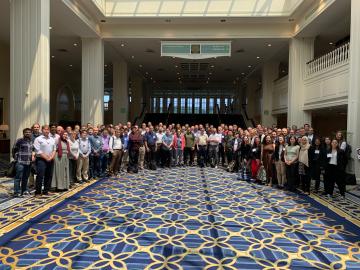
In late May, the Quantum Science Center convened its first in-person all-hands meeting since the center was established in 2020. More than 120 QSC members gathered in Nashville, Tennessee to discuss the center’s operations, research and overarching scientific aims.
For the third year in a row, the Quantum Science Center held its signature workforce development event: a comprehensive summer school for students and early-career scientists designed to facilitate conversations and hands-on activities related to

Researchers used Oak Ridge National Laboratory’s Quantum Computing User Program to perform the first independent comparison test of leading quantum computers.
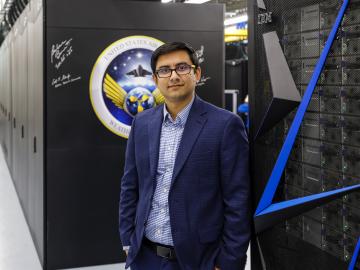
Climate change often comes down to how it affects water, whether it’s for drinking, electricity generation, or how flooding affects people and infrastructure. To better understand these impacts, ORNL water resources engineer Sudershan Gangrade is integrating knowledge ranging from large-scale climate projections to local meteorology and hydrology and using high-performance computing to create a holistic view of the future.

A study led by Oak Ridge National Laboratory researchers identifies a new potential application in quantum computing that could be part of the next computational revolution.
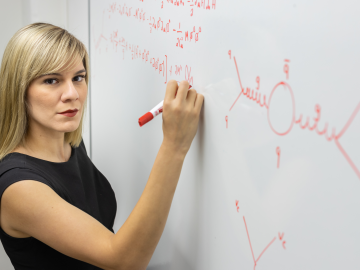
Andrea Delgado is looking for elementary particles that seem so abstract, there appears to be no obvious short-term benefit to her research.




